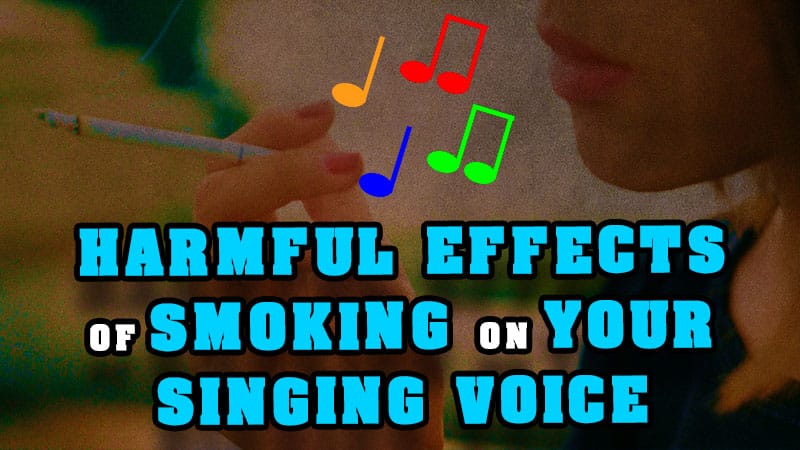Your voice is essential to the quality of everyday life, as you use it as a medium for communicating your ideas and interacting with others. For singers, the voice is especially important as a vehicle for creative expression and musical style, which is why they must take additional measures to preserve its quality.
However, certain habits can negatively affect singers’ vocal health. As explained in an article by Vuković et al. on Research Gate, smoking status can significantly influence the acoustic parameters of the voice, resulting in poorer voice quality compared to nonsmokers. Below, we take a closer look at how exactly smoking harms your singing voice and what strategies you can take to quit smoking and preserve your voice in the long term.
How smoking affects your voice
Since cigarettes and traditional tobacco products contain a number of harmful chemicals and irritants, smoking can be highly aggressive to the vocal tract and dry the vocal cord mucosa.
Excessive tobacco use can also increase the risk of irritation, hoarseness, coughing, and chronic laryngitis, leading to the loss or degradation of one’s voice.
Furthermore, in the same study linked above, findings indicate a statistically significant difference in the fundamental frequency, jitter, shimmer, and noise-to-harmonic ratio between smokers and nonsmokers. The difference is also greater the longer one smokes, with the quality of voice being poorer among those who have been smoking for over 10 years compared to smokers of less than 10 years.
Such findings highlight the importance of quitting smoking early to preserve your voice and prevent further damage, with the next section outlining effective ways to do so.
How to quit smoking and preserve your voice
Use smokeless alternatives
Since quitting smoking can be difficult due to increased cravings and withdrawal symptoms, you can opt for smokeless alternatives that relieve smoking urges without causing further harm to your voice and overall health. A report from Transparency Market Research notes that nicotine pouches have been increasingly becoming popular in the smokeless category, as these modern oral products are small, discreet, and easy to use for nicotine relief.
Besides these benefits, you can order nicotine pouches from Prilla and have them conveniently delivered from their warehouse to your doorstep. Since pouches have an oral delivery format, you can select flavors like mint and citrus to avoid further irritating your throat and voice, as well as your preferred nicotine strength from top brands like ZYN and VELO.
Complement with nicotine replacement therapy
If you’re already using an oral product for immediate nicotine relief, you can boost your chances of smoking cessation success by complementing this with nicotine replacement therapy (NRT) of a different delivery format. One such example is the Habitrol nicotine patch, as it supplies nicotine directly to the bloodstream via transdermal application.
These patches can gradually reduce cravings and withdrawals over a 24-hour period. However, just like nicotine pouches, you must choose the right dosage for your skin patch to avoid side effects like irritation and ensure its effectiveness for smoking cessation.
Try music therapy
Besides smokeless alternatives and NRT that deliver nicotine to your body, you can also choose to overcome cravings through behavioral change. For instance, a previous post listing The Benefits of Listening to Music mentions how music can help you manage stress, which is a common withdrawal symptom among smokers trying to quit.
So, instead of giving in to smoking urges and cravings, you can put on your favorite tunes to relieve stress, anxiety, and negative emotions, making it a healthy coping mechanism while trying to quit and preserve your voice.
Now that you’re aware of how smoking can negatively affect your voice remember that it’s never too late to quit and make healthier changes that allow you to enjoy music better and live life to the fullest. Continue reading The Music Universe for more interesting articles on music and pop culture.



